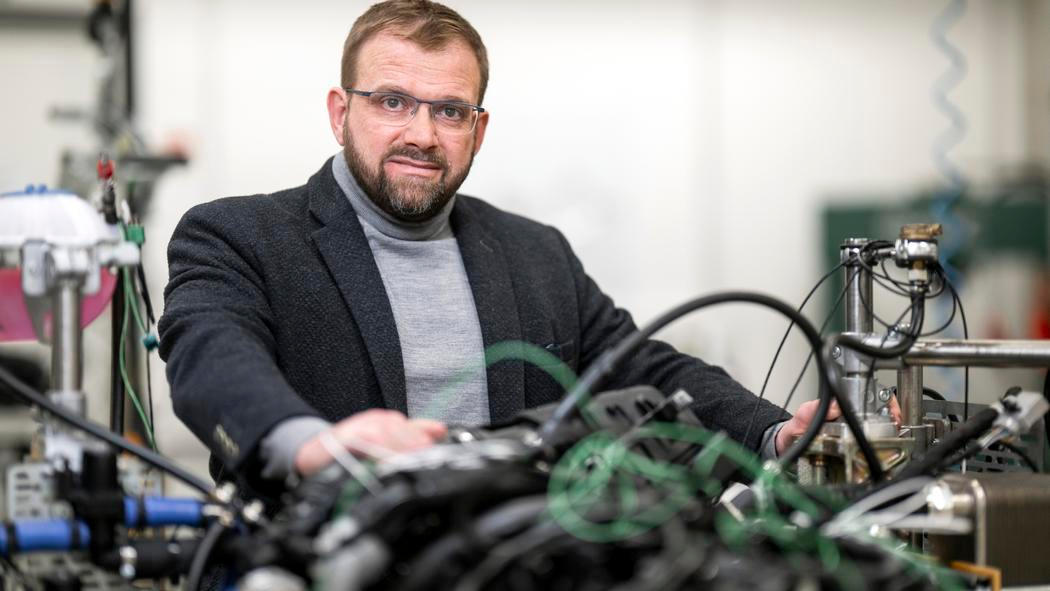The European Investment Bank is a lending institution of the European Union, founded by the EU member states, which are also its shareholders. The lending volumes make it the largest multilateral financial institution in the world. In 2020 it has signed loans worth eur 76,8 billion; the bulk of the credits, 66,6 billion, goes to the EU countries. The EIB vicepresident Lilyana Pavlova from Bulgaria has participated at the Prague European Summit in July. Her intervention focused on the new main EIB priority, which is investing in projects combatting the climate change. In an interview for Info.cz she explained this new “climate bank” concept.
The European Union has proposed huge credits to is Member States in the framework of the New Generation EU initiative conceived as a remedy after the covid pandemic has hit European economy. You seem to be doing the same. Why should the member states chose to work with the EIB in these conditions? Many of them are not interested in further loans.
Let me start by saying that in general terms the implementation of the Multiannual Financial Framework (MFF) and the recovery fund will be also a part of the EIB activity in the coming years. We will follow the goals and principles – the Green Deal and digital agenda, which are at the heart of the EU recovery strategy, and we will have a role to play in the implementation of the national recovery plans. We need to accelerate our “climate bank” roadmap for the implementation and deployment of the different instruments we have committed to, in order contribute to the climate objective of Europe becoming a carbon neutral continent by 2050.
The EIB is much more than just more accessible finances. Beside the affordable loans, the Bank also provides technical advisory support and assistance in project preparation. The technical assistance we provide is one of our main advantages; it is available not only for the projects co-financed by the EIB, but also for those which use the recovery money or the EU budget.
Accessible finances and technical advisory support and complemented by our capability to blend EU grants with our finances.
These are important elements, enhancing our relevance. This makes us an important player, a valuable player, and the much of the demand for our support stems from here.
We also offer support for the preparation of recovery and resilience plans to support faster recovery from COVID-19. We have recently signed agreements on managing parts of the recovery and resilience loans, meaning the money from the NGEU, with Greece, Romania, Italy and we expect others to follow soon.
We can also provide support for establishing financial instruments, and different capacity building support to national financial institutions. For example in Czechia we support the national promotion bank to establish its own advisory service and increase the quality of development projects in the country.
You will not find this kind of service with other financial institutions.
That is one of the reason why the demand for our support is growing.
This is an interesting aspect which is now well known. But these activities might be distracting you from your main task, providing loans to businesses. Isn't it the case?
Not at all. They reinforce our main task of supporting businesses. The private sector support is one of our priorities. We lend money to companies of all sizes – start-ups, small and medium enterprises as well as to large companies. Our portfolio is very diversified, but now, as the European “green bank”, we also concentrate on projects contributing to the “Green Deal” goals.
The other important element is our requirement of excellence. We make sure that the projects we accept for funding are in line with the highest technical and environmental standards, as well as procurement standards. This is important, because once the approval is there, thanks to the reputation of the bank, it triggers the opportunity of attracting further investment.
If we want to succeed with the carbon neutrality goal, we need to focus on the more vulnerable countries, so that nobody is left behind.
The EIB should get very much involved in the implementation of the Just Transition Fund, by offering complementary financing for the conversion of coal mining regions and the related industrial, social and educational investment. What are your plans there?
Just transition is a very interesting mechanism expected to mobilise 150 billion euros investment in this programming period. And while the mechanism will be available to all member states, technical support for the development of the Territorial Fair Transition Plans will be available to 18 member states including Czechia. The governments must submit territorial transition plans and we will be providing advisory support in the identification of the projects. In the first pillar the EIB will offer the preparation of projects with project promotors and provide additional financing for Member States should they need supplementary money to the grants. We will then oversee the implementation of large chunks of pillar two – a financial instrument focusing mainly on the private sector where the Invest EU guarantee is expected.
In the third pillar – a public loan facility backed by EC grants will only be implemented by the EIB.
The EIB advisory services will support the local authorities and regional governments in preparing projects funded by grants offered by the European Commission. In order to benefit from these grants, the projects have to meet specific criteria. We will use our experience and capacity as advisory support for the implementation of the fund.
Where does this technical expertise capacity of the EIB come from? Normally banks do not offer this type of services.
This EIB service on offer is unique and is not available with other financial institutions; it is our internal capacity. We have an excellent specialised “project directorate”, staffed with engineers, environment experts and other technical and organisational professions. Let me insist on saying that we have this capacity in-house, which is exceptional. When preparing the projects, we set up tailor-made schemes and decide on the expertise needed. Of course, if necessary, in addition to our in-house experts, we have a large advisory team and we are able to hire additional experts. At the end of the day it is not only the money, but also this expertise which is the source of validity and quality of our projects.
The Fit for 55 climate package contains also a special fund meant to help the socially weak groups to overcome the consequences of the green legislation, which will necessarily lead to price hikes and new expenses for people. Where is the role of the EIB in this context?
We are the “EU climate bank”, so our programme is by definition very ambitious and a part of overall EU efforts. The goal of the EU is to provide up to two trillion for the economy; the EIB alone aims to mobilise one trillion euros into climate-oriented investment and environmental sustainability by 2030. In doing this, we will be fully aligned with the EU objectives, programmes and instruments.
Financial stimulus packages for businesses and countries need to be adapted so that they correspond to the overall green commitments. This is our challenge. If we want to succeed with the carbon neutrality goal, we need to focus on the more vulnerable countries, so that nobody is left behind.
And then we must have in mind the global challenge – that is why we also direct our lending on combating climate change in countries outside Europe.
The EIB Climate Roadmap also has a big social element. We pledge to help communities whose economies may be hurt as they turn away from dependence on energy-intensive industries, such as coal mining or steel production. We will put more resources into a “just transition” that offers training, jobs and advisory support for people whose livelihoods must change as we move away from certain sectors.
The question of the energy mix in Europe is a sensitive one. Are you ready to propose credits for gas related projects, should gas be recognised as a transition energy source, and for nuclear projects?
Our strategy for climate action and our energy lending policy which were adopted by our board is very clear – we will phase out all lending for fossil fuel projects by the end of this year. Including gas. Priority will be given to energy efficiency projects, decarbonisation, support for renewable energy sources, in particular wind parks, and for innovative energy storage facilities.
Speaking of nuclear – according to the different scenarios and energy roadmaps nuclear energy is expected to remain in the energy generation mix, as it contributes to the reduction of CO2 emissions. For the time being we focus on care for the existing nuclear facilities, enhancing their security, caring for nuclear waste disposal. The bank has not been financing the construction of new nuclear plants for many years and for the time being we have no such plans.
Does that mean that such operation is completely out of question? Or would you theoretically envisage such an operation, upon request from a member state, for example?
I cannot give you a definitive answer. A project selected for financing must be first of all fully technically, environmentally and economically justified. It should also benefit from a positive opinion by the European Commission and be in line with the specific articles of the Euratom treaty. Only then it could be submitted for the consideration of the bank. We do not know whether the board would accept the participation in the construction of a new plant. I am not saying a clear no, but there are many conditions which must be met, should such a project be taken into consideration.
We have invested almost half a billion euros in the railway transport sector (in the Czech Republic), which is a lot. And we are currently negotiating an extension of this loan, to enable adding further projects.
The EIB has been involved in the Czech transport infrastructure improvement. Does this orientation still represent a priority?
Transport is one of the main priorities for our bank, as it is key for the economy, in particular trade. Completing the Trans-European Network (TEN) is a very important task which we will continue financing, of course in line with the new objectives for clean and digital. We are involved in completion of 20 European rail and road corridors. Basic principle is to ensure the greening of the transport sector, for instance with alternative fuels and new technologies. Road safety is another priority.
We are now revising our transport lending policy and aligning it with the “climate bank” and the EU Green Deal. We expect to complete this exercise by the end of the year. There is an investment gap in transport in Europe estimated at over 100 billion euros per year. Therefore, we will have to continue not only supporting but expanding low emission transport, rail, metro; electric buses and charging stations. This last point is a huge challenge for all of us and a critical point. The Green Deal requires very ambitious deployment of one million public charging facilities across Europe by 2025 and countries are lagging behind. The EIB is committed to supporting this task – we are now involved in financing the building of charging stations in the Netherlands, Italy, Germany and some other countries. This is important.
In the Czech Republic we have been involved in lending to the České Dráhy Cargo (ČD cargo); recently we provided a 3,5 billion CZK loan to expand, modernise, acquire new electric locomotives and modernise and upgrade older ones. Our investment in the fast-charging network in Central and Eastern Europe concerns obviously the Czech Republic as well. There are also smaller projects – for instance 50 million euros for the public transport system in Plzen, including procurement of trams and trolley buses. We would like to replicate this Plzeň experience in other cities. Besides that, we are supporting South Moravia regional transport projects with more than 97 million euros investment. Many other projects are in the pipeline.
The Czech Republic has not been very vocal about profiting from the EIB lending possibilities. The impression here is that there is not much interest using the services of the EIB.
All Czech authorities with whom we are working are excellent partners and the cooperation is very smooth. Czechia is to my mind one of the very proactive countries and we have increased our share of financing there. Správa železnic is a permanent partner with a sizeable portfolio. We have invested almost half a billion euros in the railway transport sector, which is a lot. And we are currently negotiating an extension of this loan, to enable adding further projects. We of course now need to make sure that all new projects are 100 percent climate friendly.
The EIB is lending also outside Europe. How do you choose the countries?
We are active outside the EU since 1963, so this is nothing new, and in many countries we are a strong partner. This is important, because we are complementary to the EU effort – the Union is the biggest global donor of development aid, which adds up to 75 billion euros every year. This is a lot, but the European effort is not always very visible; it is perhaps too fragmented. In any case the EIB is participating, with 10 percent of our lending being spent outside the Union as a part of the EU development policies – last year it was nine billion euros, half of it spent in Africa. Our financing there is simply huge. And we are now ready to strengthen our local presence and our communication to show what we are doing. We also wish to increase our spending in Africa, should the EU decide going in that direction.







